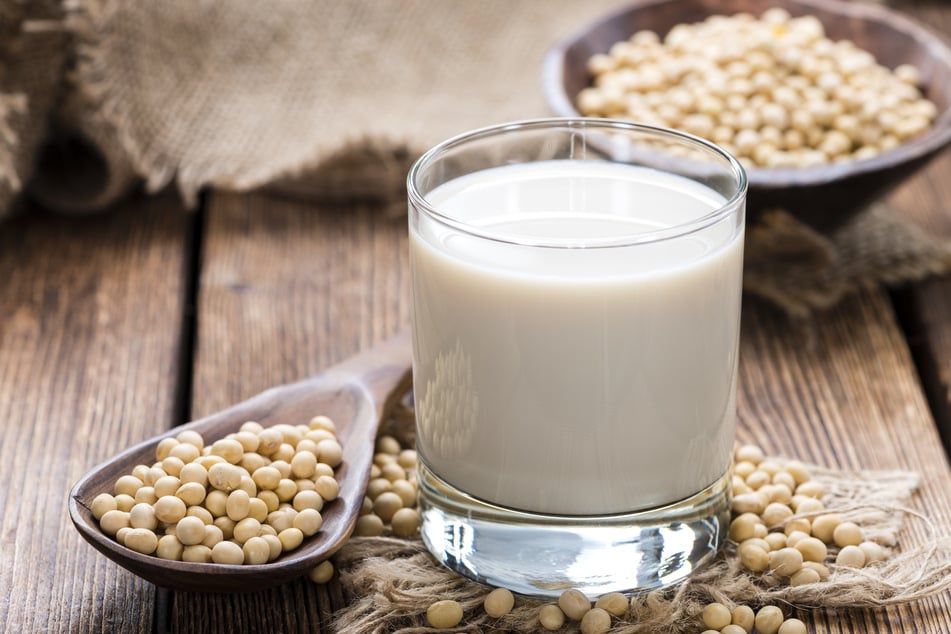Soy-based products are gaining popularity, but are they really healthy?
Germany - Soy-based products are full of plant protein and have other healthy vitamins and minerals too. Enjoyed in moderation, they can be good for the body – but not for everyone's. In fact, experts aren't sure if they are more helpful than harmful.

The soybean is an indispensable part of Asian cuisine, but tofu, tempeh, and soy sauce also have fans around the world and not all of them are vegetarians and vegans.
Almost 40% of the soybean is plant protein. But this isn't as easy for humans to digest as the protein from animals according to the German nutritionist Kathrin Hausleiter.
Yet in many cases, soy-based products can be a good substitute for meat. "Soy is often a good choice for those with milk intolerance," explains the nutritionist.
Soybeans are rich in fiber and low in cholesterol. In addition to lots of unsaturated fatty acids, they also have minerals such as magnesium and traces of iron and B vitamins.
Probably the most well known soy-based product is tofu. The word is Chinese and can be translated as "curdled bean". It's a kind of curd made from soy milk that is firm and easy to slice. Tofu has a neutral taste and can be used in both savory and sweet dishes.
"Roasting, breading, smoking, marinating - you can do almost anything with it," says Lina Cuypers from the German food manufacturer Taifun-Tofu based in Freiburg, Germany. The key to making tofu taste good is using lots of spices like basil, turmeric, paprika, or ginger.
Another popular product is tempeh, a fermented soy-based product with a nutty, mushroom-like taste. This soy product can be baked, fried, or grilled and when it's marinated in fresh spices, tempeh gets a very special taste.
The fermented Japanese paste miso, the main ingredient of miso soup, is also a soy product.
These days you can find all sorts of different soy-based products. These range from sausages and ground meat to soy-based cream and soy oil. Soybean sprouts are also a popular addition to salads.
Controversial food

Even though these products are tasty and readily available, they should not be consumed in large quantities.
"There is evidence that excessive consumption can impair thyroid gland function," says nutritionist Hausleiter. According to her, the problem is caused by isoflavones. These are secondary plant compounds found in soy, which are similar to the female sex hormone estrogen.
"You should steer clear of isoflavone supplements in powder or pill form," advises Susanne Umbach from the Rhineland-Palatinate Consumer Center.
Such remedies are supposed to help women suffering from menopause. But to date, there is no scientific proof that they actually help.
In any case, anyone thinking about taking dietary supplements like these should consult their doctor.
The European Food Safety Authority (EFSA) also recommends that products with soy isoflavones not be used for more than ten months at a time.
Scientists disagree about whether isoflavones protect against breast cancer or increase the risk. "The studies on this are extremely weak," explains Hausleiter.
Use caution when feeding babies soybean products

Physicians urge caution when giving babies soy-based food, because it is not yet clear how isoflavones work in the body.
The German Professional Association of Pediatricians insists that soy baby food should be used under medical supervision.
Patients who suffer from gout are also advised to be cautious with soy products, as some of these products may contain too much purine, an organic compound that can have adverse effects. And people who are allergic to birch may also have a sensitivity to soy protein.
According to Umbach, however, there are some indications that regular, moderate soy consumption is good for healthy adults.
Those who decide to consume soy should, in her opinion, look for products that are certified organic and from Europe. Genetic modification is prohibited in organic European products and more than 80% of global soy production are genetically modified beans, Susanne Umbach claims. She also notes that the soybeans that are cultivated in Europe don't come hand in hand with the destruction of the rainforest, as is often the case in South America.
Cover photo: ddukang/123RF

